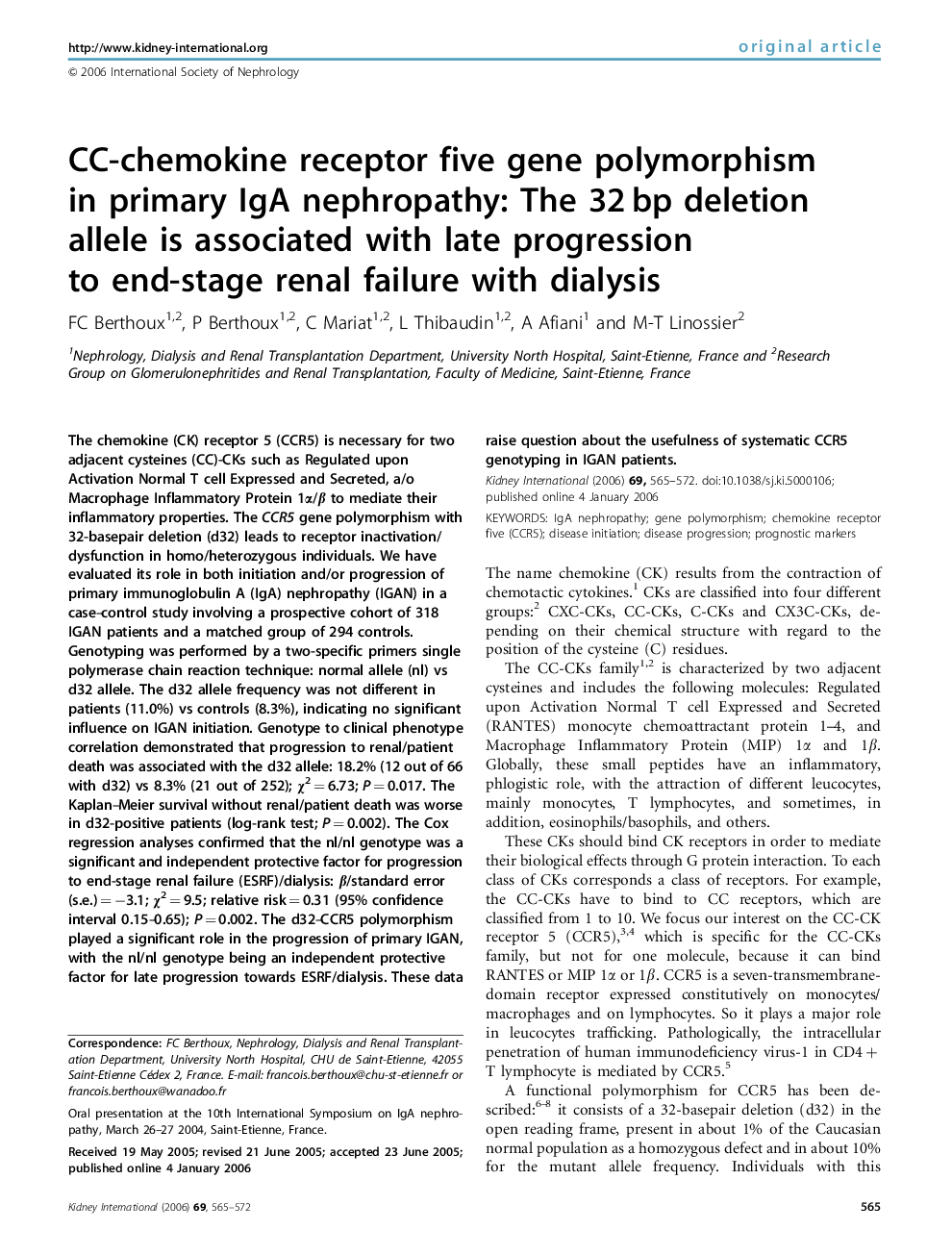| Article ID | Journal | Published Year | Pages | File Type |
|---|---|---|---|---|
| 3888090 | Kidney International | 2006 | 8 Pages |
The chemokine (CK) receptor 5 (CCR5) is necessary for two adjacent cysteines (CC)-CKs such as Regulated upon Activation Normal T cell Expressed and Secreted, a/o Macrophage Inflammatory Protein 1α/β to mediate their inflammatory properties. The CCR5 gene polymorphism with 32-basepair deletion (d32) leads to receptor inactivation/dysfunction in homo/heterozygous individuals. We have evaluated its role in both initiation and/or progression of primary immunoglobulin A (IgA) nephropathy (IGAN) in a case–control study involving a prospective cohort of 318 IGAN patients and a matched group of 294 controls. Genotyping was performed by a two-specific primers single polymerase chain reaction technique: normal allele (nl) vs d32 allele. The d32 allele frequency was not different in patients (11.0%) vs controls (8.3%), indicating no significant influence on IGAN initiation. Genotype to clinical phenotype correlation demonstrated that progression to renal/patient death was associated with the d32 allele: 18.2% (12 out of 66 with d32) vs 8.3% (21 out of 252); χ2=6.73; P=0.017. The Kaplan–Meier survival without renal/patient death was worse in d32-positive patients (log-rank test; P=0.002). The Cox regression analyses confirmed that the nl/nl genotype was a significant and independent protective factor for progression to end-stage renal failure (ESRF)/dialysis: β/standard error (s.e.)=-3.1; χ2=9.5; relative risk=0.31 (95% confidence interval 0.15–0.65); P=0.002. The d32–CCR5 polymorphism played a significant role in the progression of primary IGAN, with the nl/nl genotype being an independent protective factor for late progression towards ESRF/dialysis. These data raise question about the usefulness of systematic CCR5 genotyping in IGAN patients.
